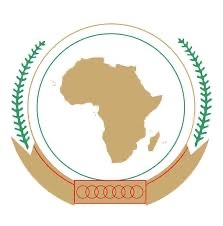
AU is an acryomn of the organization African Union, the organization was created from the former OAU (Organisations of Africa Union ) which was founded in 25th May 1963 in Addis Ababa, Ethiopia by 32 signatory government and unfortunately it was disbanded on 9th July 2002. It was after the disbandement of the OAU that AU was founded to replace it .
The African Union (AU) is a continental union that consists of 55 member states all from the African Continent, this organization was first announced in the Sirte Declaration in Sirte, Libya on 9th September 1999 where it was called to be established.
The organization was initially founded on 26th May 2001 in Addis Ababa, Ethiopia before it was fully launched on 9th July 2002 in Durban, South Africa. The aim of this organization is to unite the countries that make up Africa and the most important decisions of the AU are made by the Assembly of the African Union, a semi-annual meeting of the heads of state and government of its member states.
The AU’s secretariat, the African Union CommIssion, is based in Addis Ababa. Facts also has it that the largest city in the AU is Lagos, Nigeria while it’s largest urban agglomeration is Cairo, Egypt.
Objectives of the AU
In general, the African Union objectives are different and more comprehensive than those of the OAU. The OAU has served its mission and was due for replacement by a structure geared towards addressing the current needs of the continent.
The Aims of Africa Union (AU) were :
1. To promote the unity and solidarity of African States;
2. To coordinate and intensify their cooperation and efforts to achieve a better life for the peoples of Africa;
3. To defend their sovereignty, territorial integrity and independence;
4. To eradicate all forms of colonialism from Africa; and
5. To promote international cooperation.
Functions of AU
Comparatively, the functions of the African Union, as contained in the Constitutive Act, are to:
• Achieve greater unity and solidarity between the African countries and the peoples of Africa
• Defend the sovereignty, territorial integrity and independence of its member states
• Accelerate the political and socio-economic integration of the continent
• Promote and defend African common position on issues of interest to the continent and its peoples
• Encourage international cooperation, taking due account of the Charter of the United Nations and the Universal Declaration of Human Rights Promote peace, security, and stability on the continent;
• Promote democratic principles and institutions, popular participation and good governance
• Promote and protect human peoples’ rights in accordance with the African Charter on Human and Peoples’ Rights and other relevant human rights instruments;
• Establish the necessary conditions which enable the continent to play its rightful role in the global economy and in international negotiations;
• Promote sustainable development at the economic, social and cultural levels as well as the integration of African economies
• Promote cooperation in all fields of human activity to raise the living standards of African peoples Coordinate and harmonise the policies between the existing and future Regional Economic Communities for the gradual attainment of the objectives of the Union
• Advance the development of the continent by promoting research in all fields, in particular in science and technology
• Work with relevant international partners in the eradication of preventable diseases and the promotion of good health on the continent.
